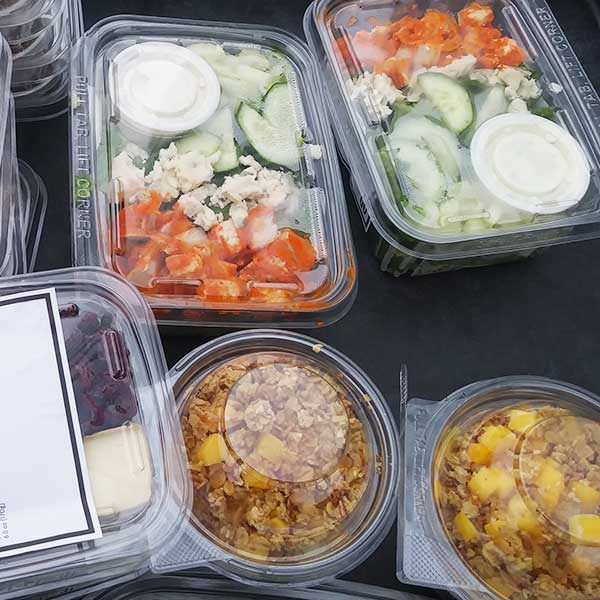Becoming a food donor doesn't just mean reducing your food waste. Here are some reasons to get started!
{zen-file-pdf-o}{/zen-file-pdf-o}Download the info on this page as a print-and-share PDF.
Protected by Law
The Bill Emerson Good Samaritan Act of 1996 protects food donors from liability when donating to a 501c3 non-profit organization in good faith.
Tax Benefits
Donations to 501c3 organizations can receive up to 50% of the USDA market value for conventional produce donations and 75 % of the market value for organic produce donation in some states.
Direct Support
Donations go DIRECTLY to people in your communities that are facing hunger
Cost Reduction
By donating surplus or unmarketable food, you reduce storage and transportation costs.
Fight Food Waste
Donated food reduces the amount of food in landfills and reduces dumping costs.
How We Work Together
Food Donors provide the wide-selection of food donated to Waste Less Solutions (WLS), provide pick-up instructions, and serve as the day-of contact for rescue volunteers. Once you are a food donor with WLS, we try to make it as easy as possible for you! All you have to do is email or call to schedule your pick-up. We ask for 24 to 48-hour advance notice in order to perform each pick-up, the advance notice ensures we can be there for you!
Waste Less Solutions coordinates all its rescue efforts through the Food Rescue US website. We manage all the logistics free of charge, so you only have to worry about getting the food safely prepared for pick-up! After our food rescue volunteers complete your pick-up, they will deliver the food directly to one of our receiving agencies for distribution to families and individuals facing food insecurity. We try our best to stay in your neighborhood!
Donors must comply with and observe all guidelines issued from applicable health authorities or we cannot perform the pick-up.
Read our guidelines on safety protocol and what types of food can be donated.
How to Get Started
Step 1
Reach out and let us know what type of food you would like to donate.
Step 2
Waste Less Solutions will set you up with a Food Rescue account that will be managed by WLS staff to ensure smooth food rescue pickups with our volunteers.
Step 3
Set up how many food rescues pickups you would like. From one time pick up to 7 days a week. We will work with whatever schedule you have.
Step 4
Maintain the relationship! We are here to help you reduce your food waste. We work as a team. In that spirit please ensure you stay in communication with us about changes in your agreed upon schedule.
Our volunteer’s time is important. If we don’t have volunteers we can’t pick up. So help us ensure we cancel rescues if there is no food to be picked up before our volunteers leave their homes.
Step 5
Enjoy the benefits of getting involved in your community and feeding the food insecure.
Important Facts About Your Liability Protection
The Bill Emerson Good Samaritan Act (PUBLIC LAW 104–210—OCT. 1, 1996 110 STAT. 3011), established in 1996, protects businesses and individuals that donate food in good faith from being held liable should someone become sick from consuming donated food. The only exception to the law is in the case of gross negligence or intentional misconduct. This Act also gives uniform minimum federal protection to donors who may cross state lines. The law protects individuals, for-profit and non-profit businesses, and governmental entities. Even if the food may not be “readily marketable due to appearance, age, freshness, grade, size, surplus or other conditions,” the Federal Act protects food and grocery products as long as they meet all quality and labeling standards imposed by regulations at the federal, state, and local levels. As a federal statute, The Good Samaritan Act creates a uniform minimum level of protection from liability for donors and gleaners nationwide.


